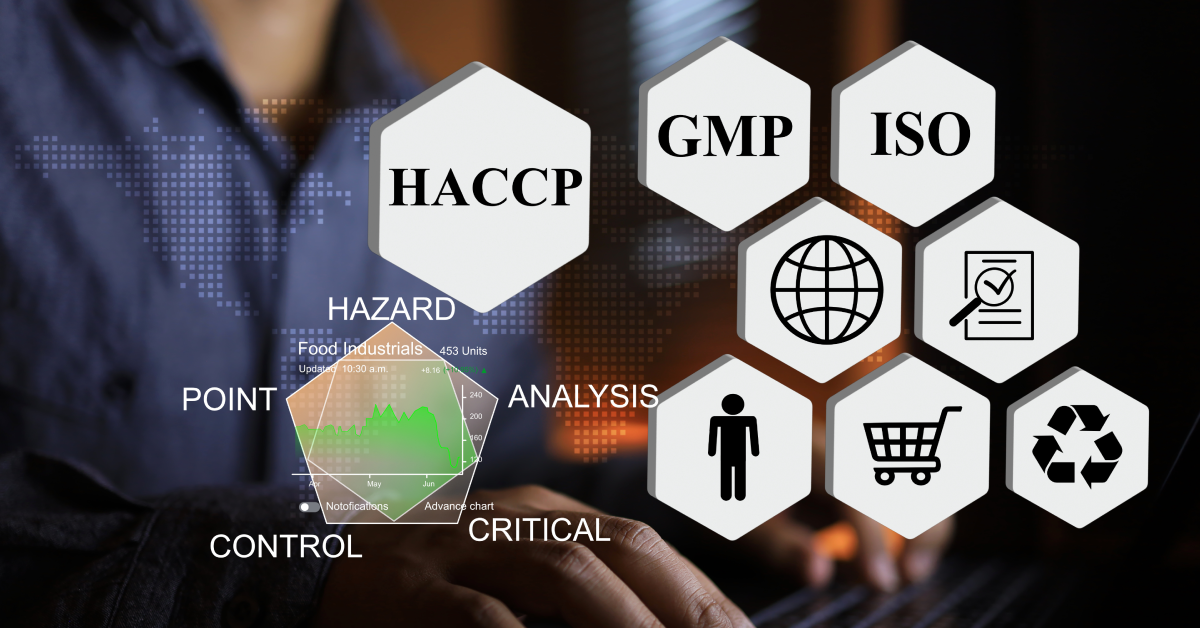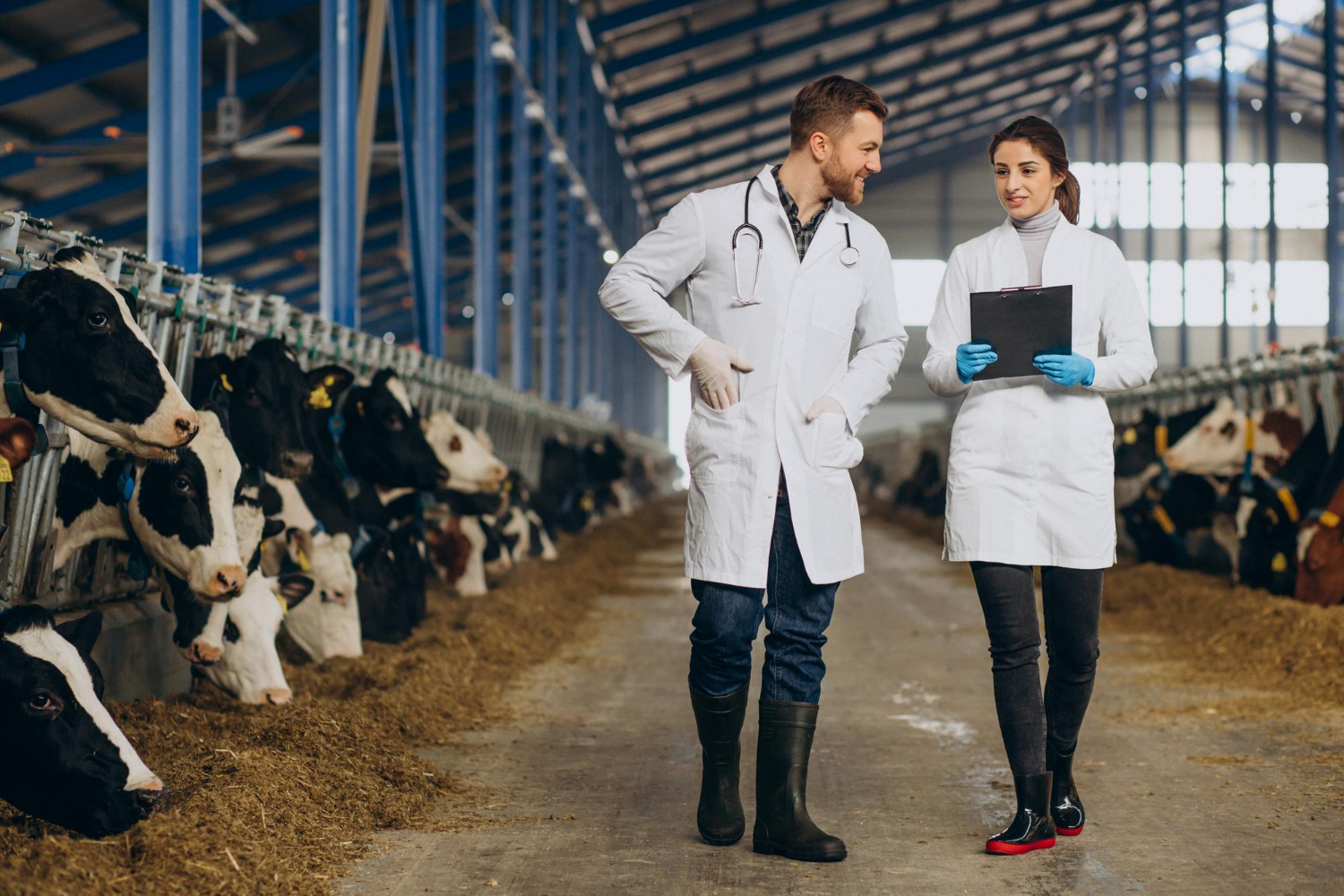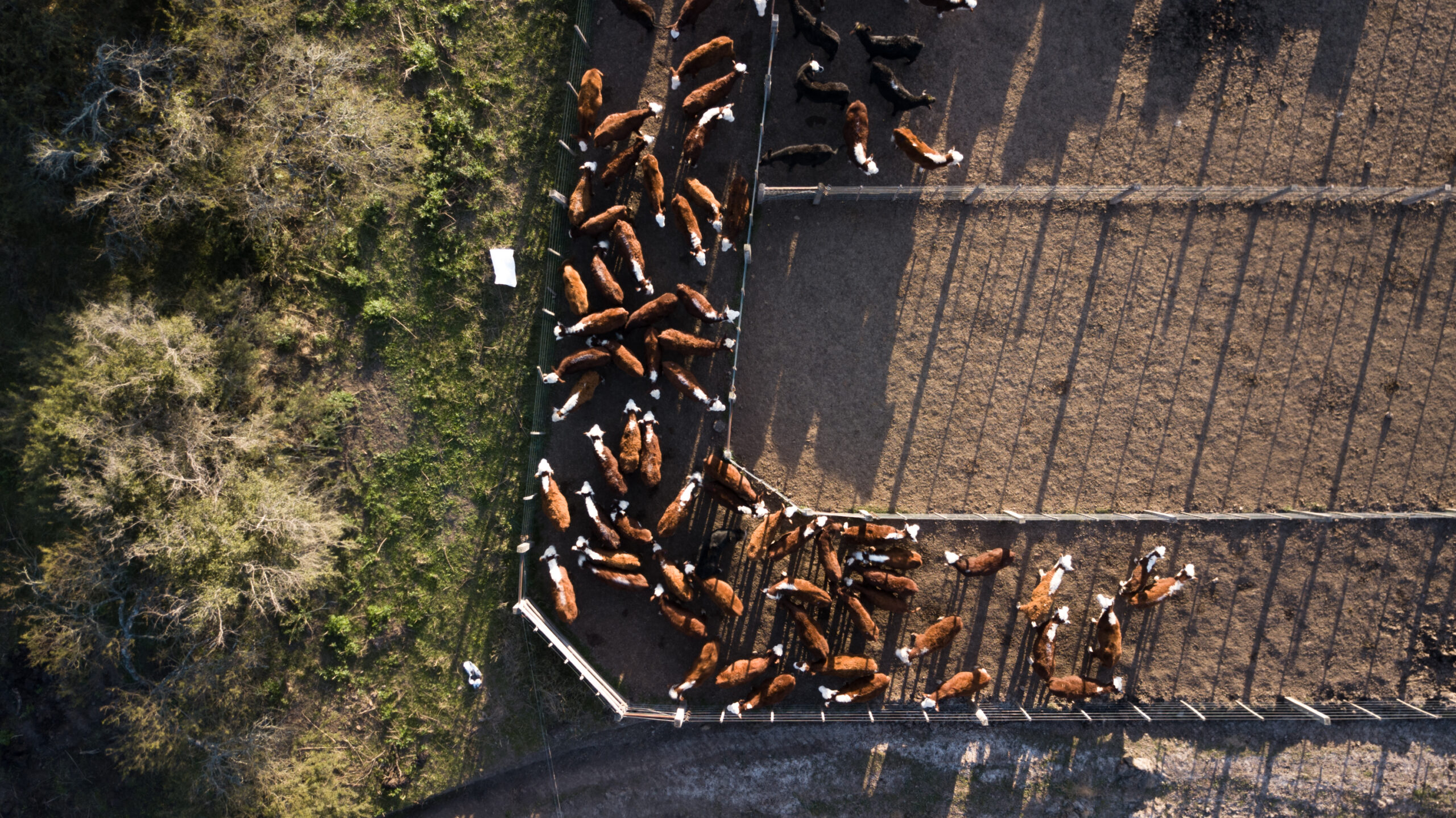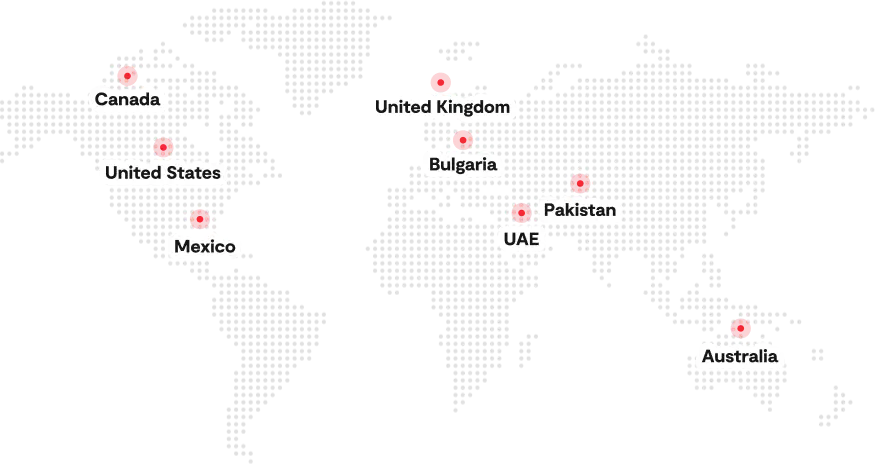Food safety is a cornerstone of public health. It underpins consumer confidence, economic prosperity, and global trade. Rigorous food safety standards are essential to protect consumers from foodborne illnesses and to ensure the integrity of the food supply chain.
This blog delves into a comparative analysis of food and safety regulations in four major economies: the United States, the United Kingdom, Canada, and Australia. By examining similarities, differences, and unique aspects of these regulatory frameworks, you will get a comprehensive understanding of the food safety industry in these countries.
Overview of Food Safety Standards
Food safety standards are a comprehensive set of guidelines that dictate how food should be produced, processed, handled, and stored to ensure it is safe for human consumption.
These standards encompass a wide range of parameters, including permissible additives, maximum levels of contaminants, bacterial limits, and stringent hygiene practices. Adherence to these standards is crucial for safeguarding public health and maintaining consumer trust.
Importance of Food Safety Standards
The significance of food safety regulations and standards cannot be overstated. By establishing and enforcing robust regulations, governments and industry stakeholders work collaboratively to prevent foodborne illnesses, which can have severe health consequences.
Furthermore, these standards ensure the quality and safety of food products throughout the entire supply chain, from farm to fork. This guarantees that consumers can enjoy their food confidently, knowing that rigorous measures have been implemented to protect their well-being.
International Benchmark
While individual countries have specific regulations, there is a growing emphasis on harmonizing food safety standards globally.
The Codex Alimentarius, developed by the Food and Agriculture Organization (FAO) and the World Health Organization (WHO), is a benchmark for international food quality standards. It provides guidelines and recommendations for countries to adopt, fostering consistency and facilitating global trade.
The Global Food Safety Initiative (GFSI) also brings together leading food safety standards and certification programs to enhance food safety management systems worldwide.
Why Do We Need Food Safety Standards?
Food safety regulations and standards are indispensable for safeguarding public health. They form the bedrock of a secure food supply chain by mitigating the risk of foodborne illnesses, ranging from mild discomfort to severe, even fatal consequences.
These standards encompass various measures, including proper hygiene practices, temperature control, and contamination prevention. By adhering to these guidelines, food businesses can significantly reduce the likelihood of consumers falling ill due to contaminated food.
Role of Food Safety Standards in Building Consumer Trust and Confidence
Beyond protecting public health, food safety standards are essential for building and maintaining consumer trust. When consumers have confidence in the safety of the food they consume, they are more likely to make informed purchasing decisions and support businesses that prioritize food safety.
This trust is paramount for the food industry’s success, as it drives consumer loyalty and contributes to overall economic stability. Moreover, robust food safety standards enhance a nation’s reputation for producing and exporting safe food products, fostering international trade and economic growth.
Food Safety Standards in the U.S.A
Regulatory Bodies
The United States boasts a robust food safety regulatory framework overseen by multiple federal agencies. The Food and Drug Administration (FDA) primarily regulates foods other than meat, poultry, and eggs.
The Food Safety and Inspection Service (FSIS) within the Department of Agriculture regulates these products. Meanwhile, the Centers for Disease Control and Prevention (CDC) is crucial in monitoring foodborne illnesses and conducting epidemiological investigations.
Key Legislation
The Food Safety Modernization Act (FSMA) of 2011 is a cornerstone of U.S. food safety, representing a paradigm shift towards a preventive approach.
This landmark legislation empowered the FDA to focus on preventing foodborne illnesses rather than solely reacting to outbreaks. Key components of FSMA include rules on preventive controls, produce safety, animal food, and intentional adulteration.
Specific Standards
Specific food safety standards in the U.S. encompass a wide range of regulations. The Hazard Analysis and Critical Control Points (HACCP) system, a preventive food safety management system, is widely adopted by the food industry.
Additionally, the FDA sets rigorous standards for food additives, focusing on ensuring their safety and efficacy. The increasing prevalence of genetically modified organisms (GMOs) has led to regulations on labeling, providing consumers with transparent information.
Inspection and Enforcement
Enforcement of food safety regulations in the U.S. involves a collaborative effort between federal and state agencies.
Inspections, compliance monitoring, and penalties are imposed to ensure industry adherence to standards. While the federal government sets overarching regulations, states often have food safety laws and programs, creating a complex regulatory landscape.
Integration with Folio3 FoodTech Food Safety Software
Folio3 FoodTech Food Safety Software can be a valuable tool for U.S. businesses navigating this intricate environment. The software can streamline operations, reduce risks, and enhance food safety by providing a centralized platform to manage HACCP plans, track inspections, and ensure compliance with FSMA regulations.
Understanding the U.S. food safety system is crucial for businesses in this jurisdiction. By adhering to regulations and leveraging technology solutions like Folio3, companies can protect consumers, maintain brand reputation, and contribute to a safe food supply.
Food Safety Standards in the UK
Regulatory Bodies
The United Kingdom has a robust food safety regulatory system overseen by the Food Standards Agency (FSA). Established in 2000, the FSA protects public health by ensuring food safety and providing consumers with clear information about food.
Key Legislation
The Food Safety Act 1990 is the primary legislation governing food safety in the UK. It outlines food businesses’ general principles and responsibilities. The Food Hygiene (England) Regulations 2013, among other regulations, provide more specific food safety requirements for food businesses.
Specific Standards
Critical aspects of UK food safety standards include a strong emphasis on HACCP implementation—this systematic approach to food safety management. Comparatively, UK food Vs. US food and UK food are widely adopted by food businesses to identify and control hazards that can cause foodborne illness.
Additionally, the UK has stringent allergen labeling regulations, requiring businesses to declare 14 specific allergens in food products. This is crucial for protecting consumers with food allergies. Furthermore, the UK has taken a proactive stance on food additives, with bans on substances such as potassium bromate.
Inspection and Enforcement
Local authorities are primarily responsible for enforcing food safety regulations in the UK. These authorities regularly inspect food businesses to assess compliance with food hygiene and safety standards.
Non-compliance can result in various enforcement actions, including warnings, improvement notices, and, in severe cases, prosecution.
Integration with Folio3 FoodTech Food Safety Software
Folio3 FoodTechFood Safety Software can help UK businesses meet food safety obligations. The software can assist in developing and maintaining HACCP plans, ensuring accurate allergen labeling, and managing inspection and compliance records.
Folio3 empowers businesses to protect consumers, maintain regulatory compliance, and build trust in their products. The UK’s food safety system, characterized by clear legislation, rigorous enforcement, and a focus on consumer protection, has contributed to high food safety within the country.
Food Safety Standards in Canada
Regulatory Bodies
Canada maintains stringent food safety regulations primarily enforced by the Canadian Food Inspection Agency (CFIA) and Health Canada. The Safe Food for Canadians Act (SFCA) and the Food and Drugs Act form the legal backbone of the country’s food safety framework.
Key Legislation
Like other nations, Canada mandates HACCP implementation for effective food safety management. Allergen labeling is required for 11 specific allergens; clear guidelines exist for GMO labeling.
Specific Standards
To ensure food safety, Canada mandates the implementation of Hazard Analysis and Critical Control Points (HACCP) systems within the food industry. Clear guidelines also exist for allergen labeling, requiring the identification of 11 specific allergens on food products. Additionally, Canada has established regulations for labeling genetically modified organisms (GMOs).
Inspection and Enforcement
The CFIA is responsible for inspections and enforcement and collaborating with provincial counterparts. Its inspection programs focus on various food sectors and ensure compliance with regulations. Non-compliance can lead to enforcement actions, including food recalls, product seizures, and financial penalties.
Integration with Folio3 FoodTech Food Safety Software
Folio3 FoodTch Food Safety Software can be a valuable asset for Canadian food businesses. By digitizing HACCP plans, managing allergen and GMO information, and streamlining inspection processes, the software helps companies effectively comply with the SFCA and other food safety regulations.
Food Safety Standards in Australia
Regulatory Bodies
Australia has a comprehensive food safety regulatory system overseen by Food Standards Australia New Zealand (FSANZ). This independent statutory body develops and sets food quality standards for Australia and New Zealand.
Key Legislation
The Australia New Zealand Food Standards Code is the region’s primary legislation governing food safety. Like other countries, Australia mandates the implementation of Hazard Analysis and Critical Control Points (HACCP) systems within the food industry.
Specific Standards
Nine specific allergens must be labeled to protect consumers with allergies. Furthermore, Australia has regulations for labeling genetically modified organisms (GMOs).
Inspection and Enforcement
State and territory authorities are primarily responsible for enforcing food safety regulations in Australia. These agencies conduct regular inspections of food businesses to ensure compliance with food safety standards. Non-compliance can result in various enforcement actions, including warnings, product recalls, and financial penalties.
Integration with Folio3 FoodTech Food Safety Software
Folio3 FoodTech Food Safety Software can assist Australian food businesses in meeting their regulatory obligations. By digitizing HACCP plans, managing allergen and GMO information, and streamlining inspection processes, the software helps companies maintain compliance with FSANZ standards and protect public health.
Comparative Analysis
Commonalities
While each country has its unique approach to food safety, several commonalities emerge. The widespread adoption of HACCP as a foundational food safety management system is evident across all four nations.
Additionally, there is a growing emphasis on preventive controls, shifting the focus from reactive measures to proactive risk mitigation. Allergen labeling is another shared priority, although the specific allergens required for declaration vary.
All countries have implemented policies regarding genetically modified organisms (GMOs), with varying degrees of regulation.
Differences
Despite these similarities, significant differences exist in specific areas. For instance, additive regulations can vary widely, with some countries banning certain substances while others permit their use under particular conditions. The list of allergens requiring labeling differs between countries, as does the frequency of inspections and the severity of enforcement actions.
Unique Aspects
Furthermore, it is essential to consider the regional variations within each country. The United States, for example, has a complex regulatory landscape with differing food safety laws at the state level.
Australia’s food safety system operates across multiple territories, each with enforcement mechanisms. These intricacies can pose challenges for businesses operating in various jurisdictions.
How does Folio3 Agtech Help Businesses to Navigate Compliance & Regulations?
Folio3 FoodTech Food Safety Software can be a valuable tool for businesses navigating these complexities. By providing a centralized platform to manage food safety processes, track regulatory changes, and ensure compliance across different jurisdictions, the software can help businesses maintain consistency and mitigate risks.
Understanding the similarities and differences between food safety standards in these four significant economies is crucial for businesses operating in multiple markets. Companies can effectively manage food safety risks and build consumer trust by carefully analyzing these regulatory frameworks and leveraging technology solutions like Folio3.
Challenges and Trends in Food Safety
Emerging Issues
The food industry operates in a dynamic environment with emerging challenges and transformative trends. Globalization of food supply chains has increased the complexity of managing food safety as products traverse vast distances, encountering multiple points of potential contamination.
Climate change exacerbates these challenges by affecting agricultural production, transportation, and the food ecosystem. Furthermore, the emergence of new foodborne pathogens necessitates ongoing vigilance and adaptation.
Technological Innovations
Technological advancements offer promising solutions to these challenges. Big data analytics enable the identification of patterns and trends in food safety data, facilitating proactive risk management.
Blockchain technology provides unparalleled traceability, allowing for rapidly identifying contamination sources. Artificial intelligence (AI) can be harnessed to analyze vast amounts of data, detect anomalies, and predict potential food safety hazards.
Future Trends
Looking ahead, the food safety landscape will continue to evolve. Regulatory frameworks are likely to become more stringent in response to emerging risks.
There will be an increased emphasis on sustainability, encompassing environmental impact, ethical sourcing, and food waste reduction. Moreover, consumers will demand greater transparency and accountability from the food industry, driving the need for robust food traceability and clear communication.
The Role of Folio3 FoodTech Food Safety Software in Addressing These Challenges and Leveraging Technological Innovations for Enhanced Food Safety
Folio3 FoodTech Food Safety Software aligns with these trends by providing tools to address emerging challenges. The software’s data management capabilities support extensive data analysis, while its traceability features leverage the principles of blockchain.
By integrating AI-driven insights, Folio3 empowers businesses to proactively manage risks, enhance food safety, and meet the evolving demands of consumers and regulators.
Practical Implications for Food Businesses: Compliance Strategies
Adhering to complex food safety regulations can be daunting for businesses of all sizes. Implementing effective compliance strategies is paramount to protecting public health, maintaining consumer trust, and avoiding costly legal repercussions.
Using technology is essential for modern food safety management. Solutions like Folio3 FoodTech Food Safety Software can streamline processes, reduce paperwork, and enhance efficiency.
By digitizing HACCP plans, tracking inspections, and managing allergen information, businesses can ensure consistent compliance with regulatory food safety requirements.
Case Studies
Businesses that have successfully navigated food safety challenges in different countries can provide valuable insights.
For example, a multinational food producer might share its experience in harmonizing operations across various jurisdictions while maintaining the highest food safety standards. A small, local food business could highlight how it has effectively implemented HACCP and built a strong food safety culture.
Tips for Businesses
To stay ahead of the curve, food businesses must continuously monitor regulatory changes, update their practices accordingly, and provide comprehensive training to employees. A robust food safety culture, where employees at all levels understand the importance of food safety, is crucial for long-term success.
Benefits of Using Folio3 FoodTech Food Safety Software for Compliance and Operational Efficiency
Folio3 FoodTech Food Safety Software can support these efforts by providing a centralized platform for accessing regulatory updates, managing employee training records, and fostering a food safety culture through data-driven insights.
By adopting best practices, leveraging technology, learning from case studies, and fostering a strong food safety culture, businesses can effectively manage the challenges of a complex regulatory environment and build a reputation for excellence.
Conclusion
Food safety standards in the U.S., UK, Canada, and Australia share foundational principles like HACCP but differ in specific regulations, enforcement, and regional variations.
By understanding these complexities and leveraging technology like Folio3, businesses can effectively navigate the global food landscape and prioritize consumer safety.
FAQs
How Many Types of Food Standards Are There?
Food quality standards vary by region, subject, creator, and purpose, making a precise count difficult.
What is ISO for Food?
ISO (International Organization for Standardization) develops voluntary, consensus-based standards for various products and services, including food. ISO food standards cover food and safety regulations, management systems, testing methods, and packaging.
What Country has the Strictest Food Regulations?
Determining the country with the “strictest” food regulations is subjective and depends on specific criteria. However, countries like the European Union, Denmark, and Singapore are often recognized for their rigorous food safety standards.
Who has the Safest Food System in the World?
Defining the “safest” food system is challenging, similar to the previous question. Many countries have robust food safety systems, and the safety of the food supply can vary by region within a country.
What Makes Enforcing Safety Standards a Challenge for the Food and Drug Administration?
Enforcing food safety is challenging due to complex supply chains, global trade, emerging threats, limited resources, and the need to balance consumer desires with safety regulations.





